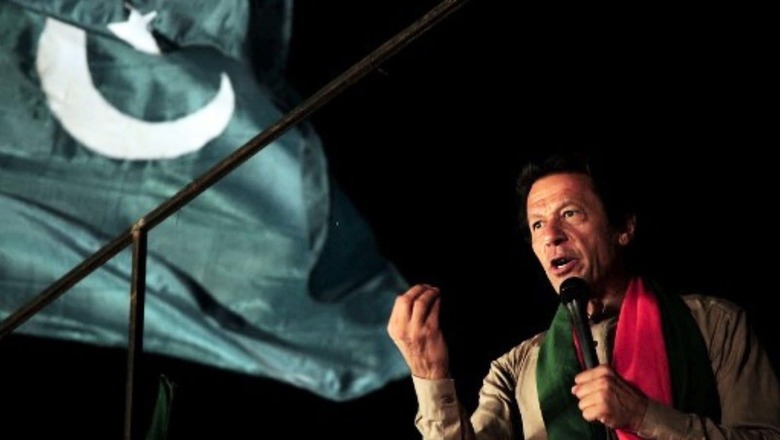
views
Imran Khan may have been forced off the political pitch in Pakistan but the former prime minister pulled out all stops to retain his crown as the Opposition closed in and readied for his ouster.
Exclusive details accessed by CNN-News18 prove that Khan, in an effort to cling on to power at any cost, was ready to impose martial law in the country and sack army chief Gen Qamar Bajwa.
Sources told CNN-News18 that on Friday, the cricketer-turned-politician sent Defence Minister Parvez Khatak, Planning Minister Asad Umar and Foreign Minister Shah Mehmood Qureshi to Rawalpindi for negotiations. The representatives requested Chief Of Army Staff (COAS) Bajwa to convince the Opposition to go for fresh elections but desist from a No-Confidence Motion.
When Bajwa told them that he had spoken to the Opposition twice but they only wanted voting on the No-Confidence Motion, the three ministers returned and conveyed the same to Khan.
On April 9, Khan instructed Speaker Asad Qaisar to hold back on voting in any case. After this delay, the establishment called Khatak and said voting should happen by 8pm the same day and this was relayed in the House by Qaisar.
This infuriated the former prime minister who instructed Khatak and Qureshi to tell Qaisar that voting will not happen in any case.
As Qaisar refused to oblige and said the move would be construed as contempt of court, leading to arrests, a helpless Imran Khan made one last attempt to cling to power.
At around 5pm, Khan spoke to someone outside his PM chamber in the lawn, assuming the area is not bugged. However, the call was intercepted and the establishment came to know about his plans of changing the army chief.
Sources said Khan wanted to remove Bajwa and appoint former ISI chief Lt Gen Faiz Hameed as the new COAS to proclaim Emergency in the country to suspend courts and other important institutions.
However, his plans were thwarted when the defence secretary did not issue the notification to sack Bajwa. CNN-News18 has also accessed the petition to overturn Khan’s action.
Following this, Bajwa and Inter-Services Intelligence (ISI) chief Lt Gen Nadeem Anjum met Khan at his residence and asked him to wind up in the next three hours. Shortly, the 69-year-old premier was ousted in a vote of no confidence in the National Assembly.
Khan became the first Pakistani prime minister to lose a no-trust vote, with the combined opposition casting 174 votes – two more than needed in the 342-member House – to remove him from the position. Members of Khan’s Pakistan Tehreek-e-Insaf party walked out of the House before voting began.
There has been speculation in Islamabad for months that Khan wanted Faiz Hameed to replace Bajwa as the Army chief so that he could manage Muttahida Qaumi Movement (MQM), Balochistan Awami Party (BAP) and Akhtar Mangal Group. Once that was achieved, it could have been easy for Khan to clear the no-trust vote, or even if he had failed, the margin would have been small.
Read the Latest News and Breaking News here




















Comments
0 comment